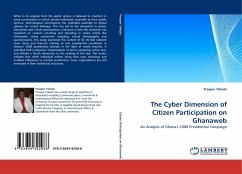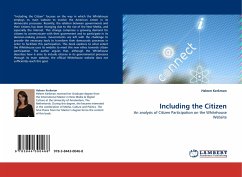In 1999, eighteen months after the broadcast of Ofra
Bikel''s documentary, The Case for Innocence on PBS''s
current affairs program, Frontline three
men wrongly accused for crimes they did not commit
were exonerated. Similarly, in 2002 Bikel produced
another exposé entitled, An Ordinary Crime about a
young man who spent four years in jail for an armed
robbery he did not commit. A new trial was ordered
less than a month after the documentary''s air date on
Frontline. The district attorney ultimately
dismissed the charges, and released Terence Garner
from prison. Mass media has the power to galvanize
public opinion, as evidenced in these examples. The
television current affairs documentary in particular,
because of its accessibility has the potential to
educate in the grand tradition of the Griersonian
documentary and bolster civic engagement. Can new
technologies mushrooming in the 21st century have
further potential in harnessing intellectual freedom?
Can they become additional vehicles in helping to
build democratic societies? This book explores
several themes, including informal modes of learning,
social movements and mass media, and their
implications for democracy.
Bikel''s documentary, The Case for Innocence on PBS''s
current affairs program, Frontline three
men wrongly accused for crimes they did not commit
were exonerated. Similarly, in 2002 Bikel produced
another exposé entitled, An Ordinary Crime about a
young man who spent four years in jail for an armed
robbery he did not commit. A new trial was ordered
less than a month after the documentary''s air date on
Frontline. The district attorney ultimately
dismissed the charges, and released Terence Garner
from prison. Mass media has the power to galvanize
public opinion, as evidenced in these examples. The
television current affairs documentary in particular,
because of its accessibility has the potential to
educate in the grand tradition of the Griersonian
documentary and bolster civic engagement. Can new
technologies mushrooming in the 21st century have
further potential in harnessing intellectual freedom?
Can they become additional vehicles in helping to
build democratic societies? This book explores
several themes, including informal modes of learning,
social movements and mass media, and their
implications for democracy.







